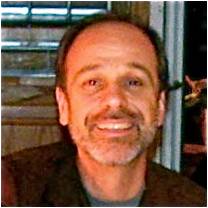
Alexander Laszlo
His background is in systems science and design, policy analysis and technology assessment, and evolutionary development (a form of sustainable “sustainable development” that is life affirming, future creating, and opportunity increasing). He is co-founder and President of Syntony Quest, and former Director of the Doctoral Program in Management at the Graduate School of Business Administration & Leadership (ITESM), Mexico. As Professor of Systems Science and Evolutionary Development, he currently teach evolutionary leadership, collaboration, and systems thinking at a variety of MBA and Doctoral programs internationally, and is the 57th President of the International Society for the Systems Sciences (ISSS). In the 1980s he pursued graduate study with Russell Ackoff in the Social Systems Sciences Department at the Wharton School of the University of Pennsylvania, and in 1992 received his doctorate in the interdisciplinary field of Science and Technology Policy. His MA is also from U of Penn in History and Sociology of Science, and his BA is from Haverford College, with a major in International and Comparative Political Science and a minor in Human Physiology.
He has worked for the UNESCO Regional Office for Science & Technology for Europe, has held visiting appointments with the London School of Economics and the European University Institute, and was named a Level I Member of the National Research Academy of Mexico (SNI). He is on the Editorial Boards of the journals Systems Research & Behavioral Science; World Futures: The Journal of New Paradigm Research; Systema · Connecting Matter, Life, Culture & Technology; and Organisational Transformation & Social Change, recipient of the Gertrude Albert Heller Award, the Sir Geoffrey Vickers Memorial Award, the Förderpreis Akademischer Klub award, and author of over sixty journal, book, and encyclopedia publications.
His areas of specialty are
¤ sustainability
¤ human development
¤ organizational change
¤ systems science and design
¤ evolutionary leadership
¤ fractal ontology
His inquiry on these topic areas involves an exploration of the pragmatic ideal of integrating the economic, ecological, social, cultural, and spiritual aspects of evolutionary development through considerations that include:
- evolutionary thinking and design for a sustainable society
- personal leadership and taking transformative stands
- systems thinking and understanding the dynamics of complexity
- sustainability principles and their application to organizations and communities
- coherence of intrapersonal, interpersonal, trans-species and trans-generational relationships
- language, metaphor, and narrative in service of strategic conversations that shape reality.
What fascinates you about your field of research?
I am passionately interested in the potential for our species to take on the role of curators of life on Earth. What this means for me is that we re-member how to connect life with life; how to create nurturance spaces that foster life affirming, future creating and opportunity increasing dynamics. My field of research addresses this inquiry by drawing on the study of downward causation in the dynamics of emergence. Rather than focus exclusively on synergy creating patterns induced by upward causation (from parts to whole), my research also includes consideration of the coherence domains that characterize a given complex adaptive system, within which certain patterns of emergence are invited to occur. When applied to the domain of human activity systems, this inquiry explores the nexus of holistic being, transcendent consciousness, curated emergence.
Where do you see or would like to see the field heading?
I would like to see the field heading in directions that acknowledge whole systems learning (in addition and as a complement to systems analysis). This has been a strong part of systems thinking in the past, but in recent years there appears to have been an over-emphasis on the rational, cognitive, analytical and propositional engagement with systemic phenomena. This is particularly of concern to me when applied to areas of social, eco-systemic, and spiritual life. The field needs to foster systemicists and cyberneticians who are more than thinkers, scholars, practitioners, scientists. We need to find ways of including systemic ways of seeing, feeling and being in our active engagement with systemic phenomena. In the end, I hope our field produces systemicists and cyberneticians who are more than just consummate cartographers of complex dynamic systems, but who are able to truly embody and enact a systems consciousness; to be the systems they wish to see in the world.
Is there an author / thinker, whose work inspires you in your own work?
I would have to say it’s Erich Jantsch these days. Two of his books, in particular, continue to inspire me: The Self-Organizing Universe: Scientific and Human Implications of the Emerging Paradigm of Evolution (1980), and Design for Evolution: Self-Organization and Planning in the Life of Human Systems (1975). In the latter, he writes of the notion of syntony, describing it as “inquiry at the evolutionary level par excellence” (1975, p. 103). He describes this inquiry as the process of cultural organization which “may be helped in an evolutionary sense by furthering cultural differentiation, a pluralism of as many ideas, life styles, and world views as possible. The invention and introduction of new forms of cultural organization ought to become increasingly a matter of conscious design” (p. 260). This is the spirit in which the World Evolutionary Learning Tribe (WELTribe) was founded, and I am delighted to take this exploration further at EMCSR 2014!
What fascinates you about World Evolutionary Learning Tribe? In your own words: Why should people go there?
The World Evolutionary Learning Tribe is a living case of systemic sustainability (aka, thrivability) using a System of Systems (SoS) approach. It is a living example of an exploration of ways in which emerging technologies in the domain of social networking can serve to augment synergies among and between disparate initiatives seeking to foster conditions for a thrivable planet.



